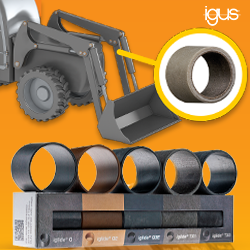What do Developers Need to Know about the Future of Autonomous Navigation
Join Point One Navigation for a special Navigation Webinar for the Ins-and-Outs of Self-Driving Vehicles, Mapping and Vision on January 30th at 9am PST
January 26, 2024 - SAN FRANCISCO, California —Point One Navigation announced an innovative and critical webinar opportunity for those involved with the creation of autonomous vehicles, as well for mapping and vision applications.
Please register here to attend this special, one-of-a-kind webinar. January 30th at 9am PST
https://pointonenav.com/epitech-university/ There is no cost for attendees.
In conjunction with the Epitech Innovation Days event (FR), Lucas Mckenna (Director, Engineering), will present an engaging and in-depth webinar that will explore the latest developments regarding precise position and navigation technologies and real-world solutions,
Webinar attendees will learn why and how Precision Navigation Technology was used for autonomous racing applications such as Indy Autonomous Challenge at CES, and the Self-Racing Cars competition. This will include key insights for autonomous vehicles developers to localize with RTK corrections and the Point One Navigation Fusion Engine. This is the latest in Sensor Fusion techniques for navigation, even in GPS-challenged environments.
Attendees will also learn about the Application of Precision Globally Referenced Location to dramatically improve the process of mapping via LIDAR sensors.
The webinar will also cover Visual Mapping and Positioning using cameras on a city-wide scale.
Polaris: Centimeter-Accurate GNSS
Point One's Polaris™ is an RTK corrections network that enables centimeter-level accurate GNSS positioning. The Polaris™ system delivers accuracy from 10 cm to 1 cm, even in challenging environments like urban canyons and occluded sky-views. Standard GNSS systems observe position uncertainty from sources such as atmospheric signal delay, satellite orbit variation, clock drift, and signal multipath. The Polaris™ network uses additional sources of information from compact base stations, greatly reducing position uncertainty.
Point One Nav FusionEngine software further integrates inertial measurement, wheel odometry and additional sensors to achieve the desired level of precision in the complete absence of satellite signals.
The Polaris™ network, with FusionEngine software, delivers cost-effective precision location services for autonomy and robotics applications. Polaris™ supports all major GNSS constellations and has an extremely dense global network of base stations that cover the United States, Europe, New Zealand, S. Korea, and parts of Canada, Australia. The network supports all modern navigation signals, maximizing compatibility and performance with all devices.
For more information about the Polaris™ RTK network, visit https://pointonenav.com/polaris
ABOUT POINT ONE NAVIGATION
Point One Navigation, headquartered in San Francisco with offices in Boston, specializes in building precise location services with accuracy down to a few centimeters at a cost 100x less than existing solutions. State of the art sensor fusion techniques and a proprietary network of sensors enable Point One to determine location with unrivaled precision and cost. To learn more about Point One Navigation and its products, visit: www.pointonenav.com.
Featured Product

igus® - Free heavy-duty plastic bearings sample box
The iglide® heavy-duty sample box provides a selection of five unique iglide bearings, each suitable for use in heavy-duty equipment due to their self-lubricating, dirt-resistant properties. Each bearing material boasts unique benefits and is best suited for different application conditions, though each can withstand surface pressures of at least 11,603 psi at 68°F.
